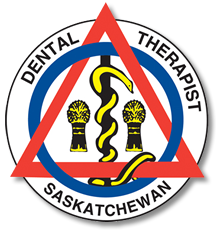Understanding the Dental Disciplines Act
In Saskatchewan, dental therapists are governed by the Dental Disciplines Act 1997 and the Saskatchewan Dental TherapistsAssociation Regulatory Bylaws and Administrative Bylaws. All dental therapists wishing to practice in the province of Saskatchewan are required to register with and be licensed by the Saskatchewan Dental Therapists Association.
HISTORY OF LEGISLATION IN SASKATCHEWAN
The Saskatchewan Dental Nurses Act was proclaimed in 1973. Dental Nursing became a self-regulated profession. This enabled the SDNA to license and regulate their own members. The Saskatchewan Dental Nurses Association (SDNA) was founded in April 1974. In 1981 the Saskatchewan Dental Nurses Act was replaced by the Dental Therapists Act. This marked the name change from “dental nurse” to “dental therapist”.
In 1997, The Dental Disciplines Act was legislated. The Act includes the six dental professions in the province: dentists, dental hygienists, dental assistants, denturists, dental technicians and dental therapists. This act provided the authority for each individual dental profession to license and regulate their own profession. As the SDTA had this authority since its inception in 1974, this legislation provided more opportunities for employers to employ dental therapists with more flexibility.
All members of the Saskatchewan Dental Therapists Association have graduated from a recognized school of dental therapy. Schools recognized by the SDTA are the National School of Dental Therapy and the Saskatchewan Institute of Applied Arts and Science – Wascana Institute. All dental therapists practicing in Saskatchewan are required to be registered and licensed with the Saskatchewan Dental Therapists Association.
The Saskatchewan Dental Therapists Association Council consists of the president, vice-president, eight members at large, three government appointed members and the Executive Director/Registrar. The council is responsible for administering the Dental Disciplines Act and the Saskatchewan Dental Therapists Associations Bylaws. The members of council chair various committees including the Executive, Professional Conduct, Discipline, Credentials, Continuing Education/Bursary, and Communications.
